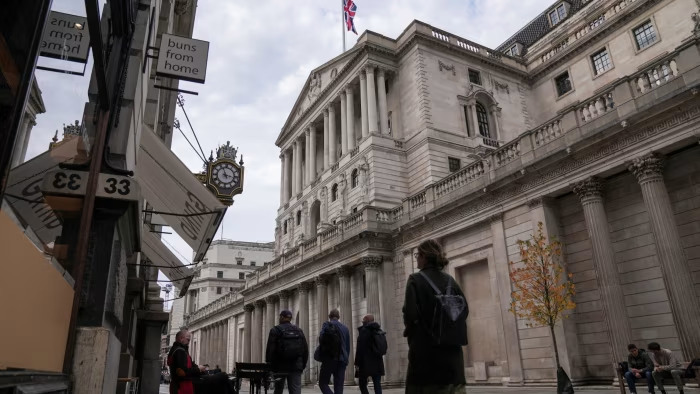Unlock the White House Watch newsletter for free
Your guide to what Trump’s second term means for Washington, business and the world
The Bank of England has diluted its planned rules for UK stablecoins in response to industry criticism by allowing some assets backing digital tokens to be invested in short-term government debt and exempting some companies from ownership limits.
But payments industry experts said the BoE’s new proposals, presented on Monday, were still too restrictive and risked putting Britain at a disadvantage compared to the United States, given President Donald Trump’s more pro-crypto approach.
Stablecoins are digital tokens pegged at a fixed one-to-one rate to a real currency. A cornerstone of cryptocurrency trading, the global stablecoin market has grown rapidly to nearly $300 billion.
Some regulators warn that they pose a threat to the stability of global finance by withdrawing deposits from banks, but supporters say it is a promising innovation that can make payments cheaper and faster.
Presenting its consultation paper on regulatory rules for widely used stablecoins, the BoE said it was “considering central bank liquidity arrangements to support systemic stablecoin issuers in times of stress.”
The BoE has been criticized for taking a more cautious approach to regulating stablecoins than other jurisdictions.
But he watered down his plans, abandoning an earlier proposal requiring all systemic stablecoins to be fully backed by central bank deposits that pay no interest, which critics said would have made launching a coin in the UK commercially unattractive.
Instead, he said systemic stablecoins could hold 60 percent of their assets in short-term UK government debt. Under a further concession, those in the process of going systemic would be allowed to hold 95 percent of their assets in such bonds “to support their viability as they grow”, the BoE said.
“Our focus remains on supporting innovation and building confidence in this emerging form of currency,” said Sarah Breeden, BoE deputy governor for financial stability. “We have listened carefully to feedback and amended our proposals to achieve this, including on how stablecoin issuers interact with the Bank of England.”
However, some crypto industry executives have said this does not go far enough. “The proposed regime still puts the UK at a disadvantage compared to the US,” said Varun Paul, a former BoE official now at digital asset provider Fireblocks.
Tom Duff Gordon, vice president of international policy at Coinbase, the US crypto assets exchange, welcomed the BoE’s planned rule changes but said it “could go further” by allowing up to 80% of stablecoin assets to invest in short-term government debt.
The central bank also maintained its plan to limit stablecoin ownership in the UK to £20,000 for individuals. But he said certain types of businesses – including supermarkets and cryptocurrency trading platforms – could be exempt from a separate £10m limit on business ownership.
The proposals aim to “maintain financial stability and enable systemic stablecoin issuers to operate viable business models,” the BoE said, adding that ownership limits would be temporary while the financial system adapts to new technology.
In a Financial Times article last month, BoE Governor Andrew Bailey signaled that he was taking a less skeptical approach to stablecoins. He noted that it would be “wrong to be against stablecoins in principle,” while welcoming their potential to “spur innovation in payment systems both domestically and across borders.”
Responding to Monday’s consultation paper, Riccardo Tordera-Ricchi, director of policy and government relations at the Payments Association, said “the opposition to holding limits is not changing, but it was good to see the bank understand that exemptions can work.”
Nigel Farage, leader of the right-wing populist Reform UK party, sharply criticized the BoE’s position. He said on Monday that by sticking to its plan to limit individual ownership of stablecoins to £20,000, the central bank was “keeping the City in the dark ages”.
The BoE said its rules would only apply to widely used UK stablecoins classified as systemically important by the Treasury. Other tokens, such as those primarily used to purchase crypto assets, would be regulated by the Financial Conduct Authority, the UK’s main financial markets regulator.
The global stablecoin market is dominated by US dollar-based tokens and received a major boost after Congress passed the Genius Act in July to create a legislative framework for digital assets.




